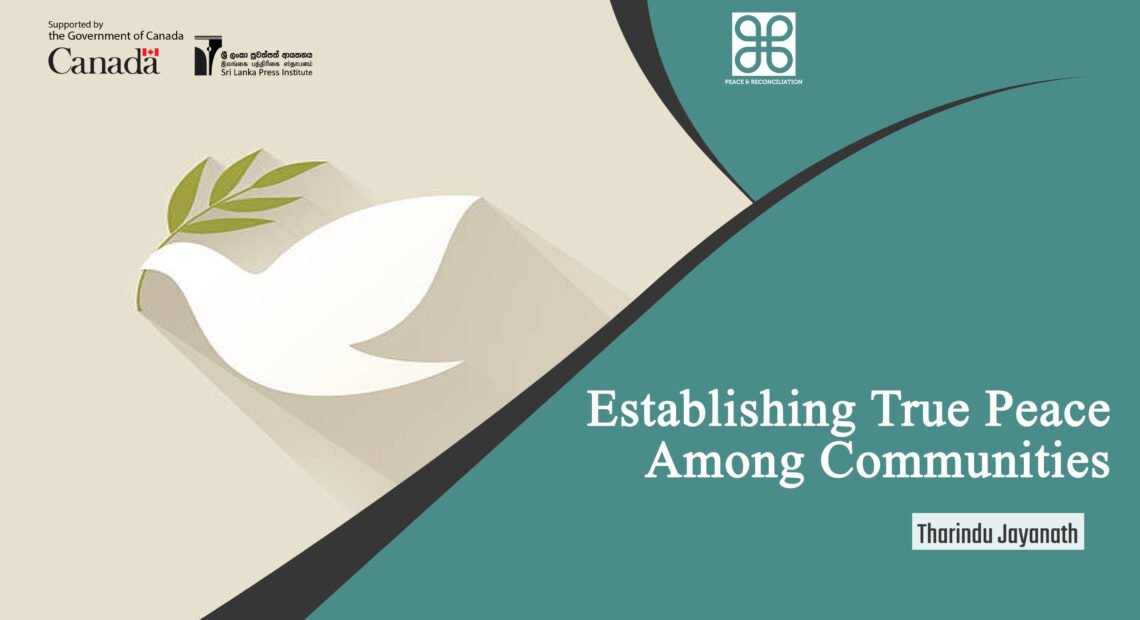
Establishing True Peace Among Communities
Tharindu Jayanath
“The practice of peace and reconciliation is one of the most vital and artistic of human actions.” – Thich Nhat Hanh
Peace is an ever-sought phenomenon throughout the world for centuries. Living a peaceful life is considered a fundamental right of every citizen. Peace has been defined in several ways based on the perceptions of different people and nations. Whatever definition is given, at present, it seems that the world has not properly identified what true peace means.
Peace is not merely the nonexistence of wars among nations. Peace consists of various aspects which considerably affect human well-being. According to UNESCO, peace has been divided into five major aspects: Individual Peace, Cultural Peace, Social Peace, Ecological Peace and Political Peace. Thus, starting with one’s own peace, it expands to peace at a community level. The five domains of peace can be explained as follows:
- Individual Peace – peace as an individual being
- Cultural Peace – peace through cultures and respect towards differences
- Social Peace – peace in society and community, and mindfulness of one’s roles and responsibilities
- Ecological Peace – peace through the preservation of ecology, and consciousness on daily actions
- Political Peace – advocacy for peace for all
Resultantly, peace is not a phenomenon which can only be established with the eradication of wars, but with the well-being and respect towards individuals, cultures, societies, ecology, and political rights, which should be uplifted in creating peace within a certain nation.
Signing treaties has a vast history which intended on establishing world peace. Treaties have been signed among several nations for decades where world leaders expressed their will to live in a peaceful society. Unfortunately, many treaties have marched towards the path of failure due to several reasons such as the self-centeredness of nations who intend merely the well-being of their sole nation. The Versailles Treaty, signed on 28th June 1919, can be considered the best example as it became a failed attempt due to the disagreements that occurred between Germany and the Allies. Such incidents clarify that nations have not been able to implement them properly regardless of the agreements on a signing. Thus, many treaties, which have been signed among several nations for years, have made into failures because of their narrow needs as a country.
Establishing true peace is not a simple task to implement. It takes dedication, altruism as well as necessity to experience true peace in order to create a peaceful society all over the world. As mentioned earlier, being limited merely to signing of agreements and broad-mindedness will close each and every gate of establishing peace. The world is looking forward to proper leaders with a clear vision to lead the way towards establishing peace within a nation.








